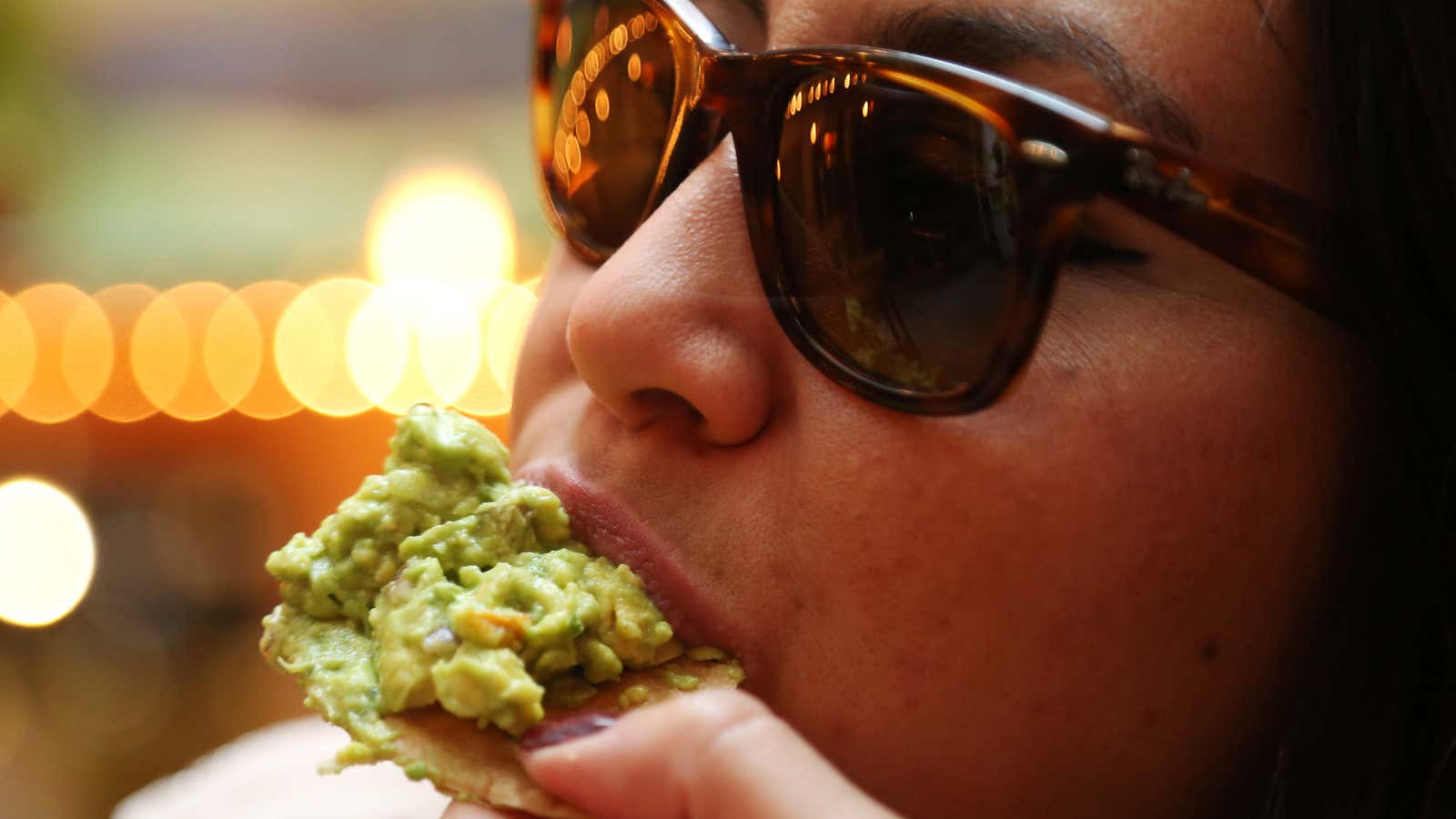Americans have been warned by Good Morning America, and by news stations in California and Texas, that not all guacamole is what it seems.
That is, some of the guacamole dished out in Mexican restaurants, or in hipster cafes, is not made from avocados alone. Now that prices for the fruit are soaring, restaurants have found wily ways to cut costs.
The secret ingredient is hard to detect
The big reveal: Chefs at some eateries are blending calabacitas, a Mexican squash, with avocados to make a version of guacamole—or even using the squash alone to create a totally ersatz dish. Worse, they’re not always telling their customers what’s in the “guac.”
“The secret ingredient that I’m sure, you know, no taqueria would ever be 100% proud to admit is Mexican summer tender, little squash,” Javier Cabral, editor of L.A. Taco, an alternative news outlet, told NPR’s All Things Considered last month. “The Mexican variety is light in color, almost the color of a nice buttery avocado…It’s scary how much this fake guacamole tastes like the real guacamole.”
Other reports say that the squash produces a thinner, more watery texture that some people—but not all—can detect.
Restaurants are also serving honest “mockamole” or eating the costs
As Quartz senior reporter Ana Campoy has reported, some restaurant owners are also being upfront about their substitutions. Chacho’s Tex-Mex restaurant in San Antonio, for instance, was offering “mockamole” on its menu. In this case, the stand-in was “a concoction of broccoli, green peas, and other green veggies.”
Others are absorbing the cost, Austin 360 recently reported. (Though one taco truck in Austin hiked the price of an added avocado slice from $1 to $2.50.)
In Los Angeles, the suggestion that a widespread scam was on prompted some spicy backlash:
To be fair, the restaurant business is tough enough without a manufactured crisis.
Avocado prices are high now, but the forecast is promising
So what’s at the root of this pitiful situation?
Avocado prices spiked this month because of the laws of the market, David Magaña, an analyst with RaboResearch in California, recently told NPR’s The Salt: “We have the highest or the strongest demand for avocados in the US, probably ever. At the same time, production of avocados has been down.”
Midsize avocados from Mexico, the kind most commonly consumed in the US, were priced at $66, wholesale, on July 19, when he spoke to the radio station. That was 91% higher than 2018 prices.
Campoy also points out that should Trump spark a trade war with Mexico, we could expect more of the same creative problem-solving by restaurateurs. In June, when Trump threatened tariffs on Mexican imports if the country didn’t stop more migrants from reaching the US border, avocado prices jumped.
However, barring a diplomatic row, we could be in for a green future. “Mexican producers and packers said this week they expect to send more than a million tons of the ‘green gold’ to the US this season, about 5% more than last year,” she wrote.
